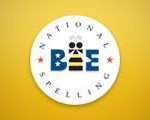Spellbound
From THE NEW YORK TIMES MAGAZINE, Sept. 1, 2002
Every September, the office of the Scripps Howard National Spelling Bee in Cincinnati issues a crisp new edition of ”Paideia,” a comic-size booklet that lists thousands of obscure words that will appear in spelling bees across the country over the coming year — words that any competitive speller in America should know cold. Most families wait for their ”Paideia” to arrive at school; but serious devotees know when the advance audio version of ”Paideia” will go up on the Scripps Howard Web site. On that day each year, the Goldsteins of West Hempstead, N.Y. — Amy, Ari, J.J. and Amanda, along with their parents, Jonathan and Mona — assemble like the Von Trapps in a thunderstorm. The whole family squeezes into Amy’s bedroom and fires up the computer, and the familiar, baronial voice of the National Spelling Bee pronouncer, Alex J. Cameron, carefully enunciates each new addition to the list — aition, buy cialis online in pakistan campanile, kittel, giaour. Each Goldstein sits with pen and paper in hand, as still and focused as a game-show contestant, and spells the words, one by one. It takes hours.
It is the equivalent, for this family, of the first scrimmage of the year. It signals the beginning of bee season, a long nationwide winnowing process that starts with the 10 million kids who enter class bees in December, passes through countless district and regional bees in the spring and concludes at the National Spelling Bee in late May, leaving a lone speller standing on a stage, holding a jug-handled trophy in clammy hands. Of all the rituals the Goldsteins observe — and as Orthodox Jews, they observe many — this is one of the most important and perhaps the most personal. It is a reminder of what binds them, and defines them, as a family.
Read the whole article here:
www.nytimes.com/2002/09/01/magazine/spellbound.html
